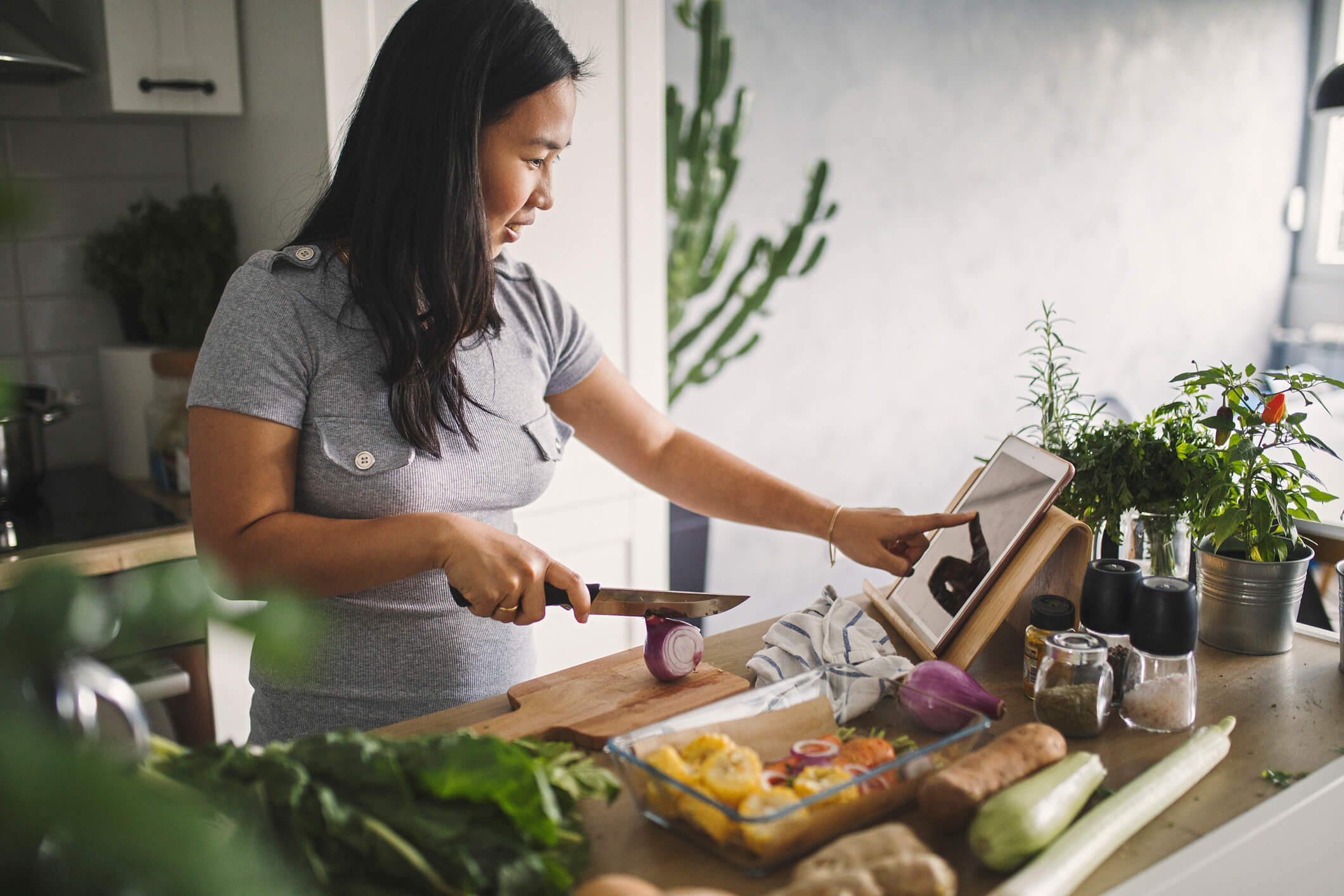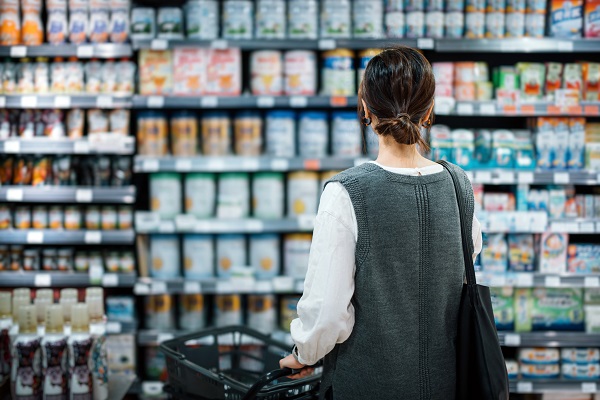-
There’s no doubt about it: Coronavirus has turned life upside down, on its head, 180 degrees. For most of us our day to day lives are pretty much unrecognisable. Some are negotiating a new way of working, often on makeshift desks in the quietest corners of not very quiet houses. Some are coming to terms with employment being put on hold, temporarily or permanently. Some are trying to juggle the demands of small, energetic people with their ever expanding to-do lists. And some are dealing with illness, caring for loved ones, grieving losses and trying to stay above water in the face of an unprecedented crisis.
The current social distancing guidelines also mean that most of us are spending the vast majority of our days in our houses and it’s easy to see how we can find ourselves falling into bad habits when it comes to our health. Things like staying up late, exercising less, over-eating, indulging in one too many wines or comfort eating sugary snacks can creep up on us during this time; it’s worth remembering that the long terms effects of these kind of behaviours could have a significant effect on our health.
It might be difficult but the things we do now could set us up for a healthier future: here’s some changes you can make today that could have positive long-term effects.
Improving your diet
It’s more important than ever to eat a healthy, balanced diet. It supports our immune system, protects us from illness and gives us the energy to tackle life’s daily challenges. However, healthy eating can also help reduce our risk of future health conditions such as obesity, cancer, diabetes and heart disease. Whilst it’s good to treat yourself every now and again, getting into healthy habits now could have a lasting effect for years to come.
Learning how to cook healthy meals packed with fresh veggies and getting into the habit of meal prepping means you’ll be getting plenty of nutrients and relying on takeaways and ready meals much less. Australian guidelines recommend that you consume from 5 key food groups daily so make sure you include the following in your meal plan along with plenty of water:
- wholegrain/high fibre grains such as oats and brown rice
- vegetables and legumes
- fruit
- dairy products such as milk
- lean proteins and/or meat substitutes
If you’re struggling to find key ingredients that you need or you’re unable to get out to the supermarket, get creative in the kitchen. Frozen fruits and veggies are a good substitute for fresh and keep for longer, plus items such as grains, canned vegetables and long life milks can be handy in a pinch. Check out Medibank Live Better for a whole range of healthy recipes.
Finally, it can help to try to stick to an eating routine where you can. With our normal daily schedules out the window, it’s tempting to just eat whenever you feel like it. This can lead to mindless snacking and overeating, especially when we’re spending most of time in close proximity to the fridge!
Reduce your alcohol intake
During this time, you might have found yourself having one or two more wines than usual in the evening. Or looking forward to a cold beer at the end of a working-from-home day. Alcohol is often seen as a coping mechanism for stress and anxiety and in this changing environment it can be very tempting to reach for the wine.
Although alcohol is peddled as a great way to relax, in the short-term it can affect your mood and stress levels; neither of which is helpful during this challenging time. However, it also has negative long-term effects that could impact your health. Alcohol can lead to chronic illness such as cancer, oral health issues, cardiovascular disease and liver disease. It can also lead to us piling on the pounds leading to obesity.
It’s totally fine to want to enjoy a tipple or two, but try to be mindful of how much you are drinking and keep within the recommended guidelines. If you’re drinking to manage your stress, try to replace it with healthier alternatives such as taking a bath, reading a book or talking to a loved one. You could also try and aim to have two alcohol-free days each week to limit your intake.
Limiting the amount of alcohol you buy and stocking up on healthy, non-alcoholic alternatives like sparkling mineral water with a wedge of fresh lemon or lime could also help you cut down on the booze. Check out our mocktail recipes for some 0% alternatives to your favourite drink.
Cutting down on your alcohol intake now could set better habits for the future.
Stub it out
Like alcohol, smoking is another habit that can affect you negatively in both the short and long run.
With winter on the way, now is the time to quit smoking. People who smoke are more likely to be at risk of chest and lung infections and, whilst the link between COVID-19 and smoking isn’t clear yet, this may mean you could have a higher risk of complications should you contract the virus.
In the short-term, quitting smoking can lead to improved skin appearance, improved circulation, an increase in energy and an improved immune system.
Your long-term health will also benefit: smoking is one of the leading preventable causes of cancers and is one of the key risk factors for other chronic health conditions including heart and lung disease.
If you’re struggling to quit, take a look at the advice from the Department of Health for the best way to kick the habit for good.
How to plan for a healthier future during COVID-19

-
Get a good night’s sleep
Getting a full 8 hours shut eye is easier said than done during a time of crisis. It’s natural for stress to affect your sleep whilst a loss of routine can lead to us going to bed later and not sticking to a regular sleep pattern.
A good night’s sleep can protect your overall health so it’s important to get to bed at a reasonable hour during COVID-19. Mastering your night time routine now can also benefit you in the future as regularly getting enough sleep can lessen your risk of ongoing health conditions such as obesity and high blood pressure.
Make sure you’re getting the hours that you need by setting yourself a regular bedtime and wake up schedule and making time to relax before bed. Taking care of your diet and regular exercise can also help improve your sleep. For more tips on how to get a good night’s sleep, check out this resource.
Move your body
More than half of Australians do not get enough exercise, impacting our energy levels and quality of life. Incorporating exercise into our routines now can greatly benefit our future selves: reducing ongoing health conditions such as obesity, heart disease and diabetes. It can help reduce or manage blood cholesterol and pressure, and prevent your risk of cancer. It can also be beneficial to your mental health.
So, with COVID-19 resulting in the closure of gyms and exercise classes, how can we get moving? Try getting some incidental exercise into your day with a brisk walk, run, or a bike ride around the block or your local park. Just make sure to follow the social distancing guidelines! If you’re unable to get out and about, why not push the furniture back and turn your living room into a private yoga or pilates studio, or put on your favourite tunes and dance it out, whatever gets a sweat on!
To get started on some exercises you can do at home, plus daily meditation practices, check out Medibank’s Live Better at Home. Don't forget to see your GP for a check-up before starting any new exercise program.
Making exercise a part of your daily life now means you’re more likely to keep it up in the future, which in turn could keep you healthy for longer.
Look after yourself
It’s normal to be feeling uneasy, stressed or worried during this time. Our daily routines have changed so much and life might feel very uncertain at the moment.
Looking after your mental health by incorporating mindfulness into your daily routine, practicing breathing exercises in times of stress, limiting how much news coverage you take in and reaching out to others could be really beneficial not only during this time, but in the future too.
-
Signs to look out for when a cold is getting more serious
When you should see a doctor for a cold.
-
The health checks to keep in mind at different stages in your life
Have you had these health checks?
-
Bowel cancer: risks, symptoms, diagnosis and treatment
Learn more about bowel cancer
-
Flu myths debunked
Is 'man flu' real? Can you catch the flu from the flu vaccine? We separate flu facts from flu fictions.
-
Where to get health support in Australia
An Overseas Student Health Cover member’s guide to key health services and when to use them.
-
How can Australian pharmacies help you?
What can you buy at a pharmacy? Do you need a prescription? Can pharmacists identify health conditions? Everything international students need to know about pharmacies in Australia.
Subscribe to receive the best from Live Better every week. Healthy recipes, exercise tips and activities, offers and promotions – everything to help you eat, move and feel better.
By clicking sign up I understand and agree to Medibank's privacy policy





